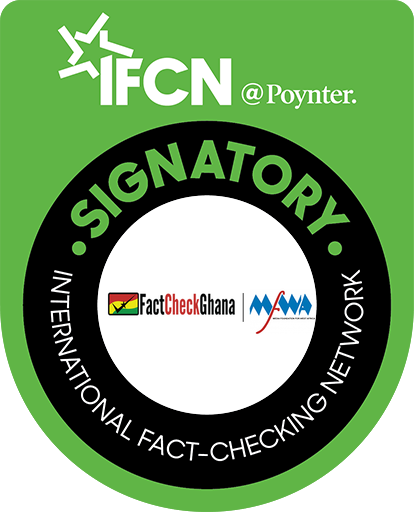So far, the World Health Organization (WHO) has labelled five major variants as “variants of concern”, with the latest being the Omicron variant which has been detected in South Africa.
The “variant of concern” is a label used to easily identify and describe Covid-19 variants when they are more contagious, more powerful against current vaccines and/or when they have a combination of being both contagious and powerful against vaccines.
The first four variants – Alpha, Beta, Gamma, and Delta – strongly showed their presence in a number of countries, infecting many and grounding themselves variants of concern indeed.
The Alpha variant was present in 193 countries, Beta was reported in 141 countries, Gamma was also reported in 91 countries and the all-popular and dominant Delta variant which was first discovered in India was present in 170 countries.
There is however another label for other variants that do not raise much concern yet are important to keep close eye on— they are termed “variants of interest”. These include mu, zeta, eta, theta, iota, kappa and epsilon variants.
In order for the WHO to properly label variants, they decided to use the Greek alphabet system so as to avoid stigmatizing countries that detect and report new variants. According to Ms. Maria Van Kerkhove, the WHO’s Covid-19 Technical lead, “No country should be stigmatised for detecting and reporting variants.” She tweeted this when the Greek alphabet was announced.
This is why the first variant which was first identified in Kent, UK, was named Alpha, the second, identified in South Africa. was called Beta, the third and fourth identified in Brazil and India were also called Gamma and Delta respectively.
Why the name Omicron?
Originally, the new variant detected from South Africa should have been named Nu or Xi instead of Omicron. This is because variants are named in accordance with the arrangement of the Greek alphabet as mentioned earlier. The last identified variant was the Mu variant, named after the 12th out of 24 letters in the Greek alphabet.
Yet, the WHO on Friday Nov. 26, 2021 named the new variant Omicron, skipping the Nu and Xi letters preceding it. This raised a lot of speculations and criticisms from top politicians and social media users around the world who accuse the WHO of giving into pressure from China.
US Republican Senator Ted Cruz in a tweet suggested that naming the new variant Omicron showed that the WHO was “scared of the Chinese Communist Party”.
If the WHO is this scared of the Chinese Communist Party, how can they be trusted to call them out the next time they're trying to cover up a catastrophic global pandemic? https://t.co/wURdLcdqw2
— Ted Cruz (@tedcruz) November 26, 2021
On Saturday, the son of former US President Donald Trump, Donald Trump Jnr tweeted: “As far as I’m concerned the original [name] will always be the Xi variant.”
As far as I’m concerned the original will always be the Xi variant. https://t.co/tm8EWcmq3A
— Donald Trump Jr. (@DonaldJTrumpJr) November 27, 2021
Outspoken Indian politician Priyanka Chaturvedi, also taking to Twitter, slammed the WHO for fearing to call out China and skipping the Nu and Xi letters as a variant.
WHO won’t call out China
WHO will skip Nu and Xi as a variant.
But WHO’s apologists will come on our timeline to accuse Africa and India.
Guys get a spine then will talk.— Priyanka Chaturvedi🇮🇳 (@priyankac19) November 27, 2021
In response to these and various concerns raised over the skipping of alphabets, the WHO, in a statement to the Associated Press, said it skipped nu for clarity and xi to avoid causing offence generally.
“‘Nu’ is too easily confounded with ‘new’, and ‘Xi’ was not used because it is a common last name,” the WHO said.
The global health agency also added that the agency’s “best practices for naming disease suggest avoiding ‘causing offence to any cultural, social, national, regional, professional or ethnic groups.’”
According to the National Post, data from the Chinese Ministry of Public Security suggests that the Chinese president’s surname is the 708th most common family name in the country. Also, a number of Chinese characters which are pronounced as “Xi” in different tones are used as surnames.
But the online news media asserts that, Mu — the last variant named after a Greek letter — is a more common family name than Xi.

How dangerous is the Omicron Virus?
According to the BBC, the Omicron variant, also called B.1.1.529 has had experts particularly worried because it is very different to the original Covid, which current vaccines were designed to fight.
The Omicron variant has a long list of genetic changes (50) out of which 32 are in the spike protein of the virus. This means that there is a high number of mutations in the spike protein thus, can affect how easily the virus spreads to people.
But scientists are still in the process of researching exactly what the genetic changes mean, to know if the variant is more transmissible or dangerous. So far, there is no indication the variant causes more severe disease, the AP news reports.
This report is produced under the project: COVID-19 Response in Africa: Together for Reliable Information being implemented with funding support from the European Union.



